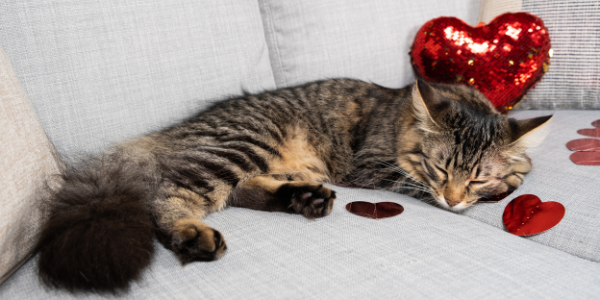As part of your cat’s regular wellness examinations, our vets will assess the rate, sounds, and rhythm of its heart. Atypical heart sounds include murmurs (abnormal “whooshing” sounds) and gallop sounds (extra sounds in addition to the usual “lub dub” rhythm).
What causes abnormal heart sounds in cats?
Abnormal heart sounds can occur for several reasons in cats, including:
- Congenital heart issues (i.e. a structural heart problem that your cat was born with)
- Acquired heart disease (e.g. a damaged heart valve)
- Other causes of unwellness affecting heart health (e.g. an overactive thyroid gland or high blood pressure)
- Stress hormones temporarily affecting heart function, causing what is known as a “physiologic” or “benign” murmur
Are certain breeds of cats more prone to heart problems?
Maine coon, Persian and ragdoll cats are unfortunately predisposed to developing hypertrophic cardiomyopathy, one of the most common acquired heart diseases seen in cats.
What should I do if an abnormal heart sound has been detected in my cat?
Unfortunately, heart murmurs in cats can be misleading; not every cat with heart disease will develop an audible murmur, whilst on the flip side, heart murmurs can occur for harmless reasons, as per the “benign” murmurs listed above.
If we hear abnormal heart sounds in your cat (or if your cat is of a breed predisposed to heart disease and you would like them screened), we will discuss further investigation to assess their risk of issues.
The first step is usually an evaluation of your pet’s general health with blood tests and blood pressure measurements, as this checks for diseases that can affect heart health. There is also a blood test called NT-proBNP, which can help screen your cat for evidence of heart problems.
Depending on your pet’s results, the next step may be to refer your pet to a specialist for an echocardiogram (heart ultrasound).
For more information on feline cardiac health, consult our heartily knowledgeable team.

